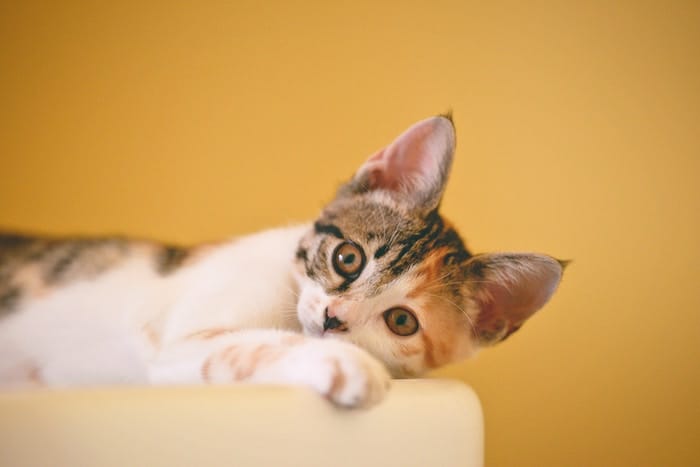Cats are known for their independent nature, but they can’t always communicate when something is wrong with their health. As a responsible pet owner, it’s crucial to be vigilant and watch for signs that your feline friend may be unwell. Knowing when to take your cat to the vet can mean the difference between early intervention and a more serious health issue. In this blog post, we will explore the key signs that indicate it’s time to schedule a visit to the veterinarian.
10 Signs It’s Time to Visit the Vet

- Changes in Eating Habits
One of the most noticeable signs that something may be amiss with your cat’s health is a change in their eating habits. If your cat suddenly loses interest in food, refuses to eat altogether, or starts eating significantly more or less than usual, it can be a red flag. Loss of appetite can be indicative of various underlying health issues, including dental problems, gastrointestinal disorders, or even serious conditions like kidney disease.
- Frequent Vomiting or Diarrhea
Occasional vomiting or diarrhea may not be cause for concern, as cats can have sensitive stomachs. However, if your cat experiences persistent or severe episodes of vomiting or diarrhea, it’s time to consult a veterinarian. Chronic gastrointestinal issues can be caused by infections, dietary intolerances, or more serious conditions that require medical attention.
- Changes in Urination
Changes in urination habits can be indicative of urinary tract problems or kidney issues. Watch for signs such as straining to urinate, frequent urination, blood in the urine, or urinating outside of the litter box. These symptoms could signal conditions like urinary tract infections, bladder stones, or even feline lower urinary tract disease (FLUTD), which can be painful and life-threatening if left untreated.
- Lethargy and Decreased Activity
Cats are known for their playful and active nature. If your cat suddenly becomes lethargic, appears weak, or loses interest in activities they once enjoyed, it’s a sign that something might be wrong. Lethargy can be linked to a range of health issues, including infections, pain, or underlying medical conditions, and it should not be ignored.
- Changes in Weight
Unexplained changes in your cat’s weight can be a concerning sign. Both sudden weight loss and weight gain can be indicative of health problems. Rapid weight loss may be linked to hyperthyroidism, diabetes, or other metabolic disorders, while unexplained weight gain can signal issues like hypothyroidism or obesity.
- Respiratory Problems
Respiratory issues in cats can manifest as coughing, wheezing, sneezing, or labored breathing. These symptoms may be caused by infections, allergies, asthma, or even heart disease. If your cat exhibits any unusual respiratory signs, it’s essential to seek prompt veterinary care to determine the underlying cause and receive appropriate treatment.
- Changes in Behavior
Cats often show subtle changes in behavior when they are unwell. If your usually friendly cat becomes aggressive, withdrawn, or unusually irritable, it may be a sign of pain or discomfort. Conversely, a typically aloof cat seeking excessive attention could also be signaling distress. Trust your instincts as a pet owner and take note of any significant shifts in your cat’s behavior.
- Skin and Coat Issues
Healthy cats have sleek and well-groomed coats. If you notice changes in the condition of your cat’s fur, such as excessive shedding, hair loss, dryness, or the presence of skin lesions, it can be indicative of underlying health problems. Skin issues can be caused by allergies, parasites, infections, or systemic diseases.
- Dental Problems
Dental health is often overlooked in cats, but it’s crucial for their overall well-being. Signs of dental issues include bad breath, reluctance to eat, drooling, pawing at the mouth, or visibly inflamed gums. Dental problems can lead to significant pain and discomfort, making a vet visit necessary to address and prevent further complications.
- Age-Related Changes
As cats age, they become more susceptible to various health issues. If you have an older cat, be vigilant for signs of aging-related problems such as arthritis, vision changes, or cognitive decline. Regular check-ups become even more critical as cats age to catch and manage these issues early.
Well, That’s a Wrap
Cats are masters at hiding their pain and discomfort, making it essential for pet owners to be attentive to any signs of illness or distress. Recognizing the signs that your cat needs veterinary care can lead to early diagnosis and treatment, improving your cat’s chances of a full recovery and a longer, healthier life.
If you notice any of the signs mentioned, don’t hesitate to consult your veterinarian to ensure your beloved feline companion receives the care and attention they deserve. Your vigilance and proactive approach to your cat’s health can make a significant difference in their quality of life.
